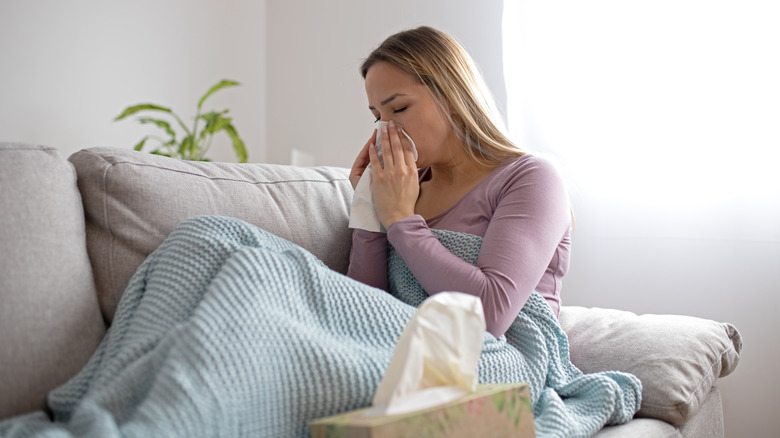Could Estrogen Play A Role In Protecting Against Severe COVID-19?
COVID-19 has claimed more than six million lives over the past two years. While the number of new cases continues to drop in many places, several questions remain unanswered. For example, researchers are trying to determine why men have contracted the virus at a higher rate than women. Clinical research featured in PLoS One suggests that men are more likely to die from COVID-19 and require longer hospital stays compared to female patients, regardless of their age, race, or pre-existing conditions.
The Brookings Institution confirms these findings, saying that COVID-19 killed at least 65,000 more men than women in the U.S. as of October 2021. "There have been studies that looked at things like adherence to mask policies or social-distancing guidelines. They saw differences in gender adherence to those, with men being less likely to wear masks properly or to adhere to social distancing guidelines — that's not due to biology," researcher Tamara Rushovich told The Harvard Gazette. However, social behavior alone doesn't explain these disparities. Chances are, it's a combination of factors that increases the risk of complications of COVID-19 in men.
Recent evidence indicates that estrogen, the female sex hormone, may play a role. Back in 2009, researchers found that women have a stronger immune system than men due to their higher estrogen levels, notes Science Daily. This hormone supports immune function and improves your body's ability to deter pathogens. The question is, do these findings apply to COVID-19? Let's see what the experts have to say.
Higher estrogen levels may reduce complications from COVID-19
Estrogen, the main sex hormone in women, may protect against viral infections, according to 2018 research published in Frontiers in Immunology. A recent study featured in the journal Family Practice suggests that women who receive hormone replacement therapy (HRT) with estrogen are less likely to die from COVID-19. Researchers investigated the effects of HRT on more than 5,400 menopausal women diagnosed with COVID-19. Those who received HRT within six months of contracting the virus had a lower risk of death from all causes.
Scientists believe that estrogen may reduce the severity of COVID-19 in women due to its immune-boosting and anti-inflammatory effects. Observations suggest that both HRT and combined contraceptive pills improve immune function and protect against viruses. Progesterone and testosterone, on the other hand, may suppress the immune response, explains a 2021 review published in the journal Frontiers in Nutrition.
Hormone replacement therapy, however, can have serious side effects. Up to 10% of patients who receive treatment experience mood changes, fluid retention, or other issues, reports the Cleveland Clinic. In the long run, HRT may contribute to breast or endometrial cancer, heart disease, inflammation, stroke, and blood clots. Additionally, it may not be safe for women with certain conditions, such as gall bladder or liver disease.


